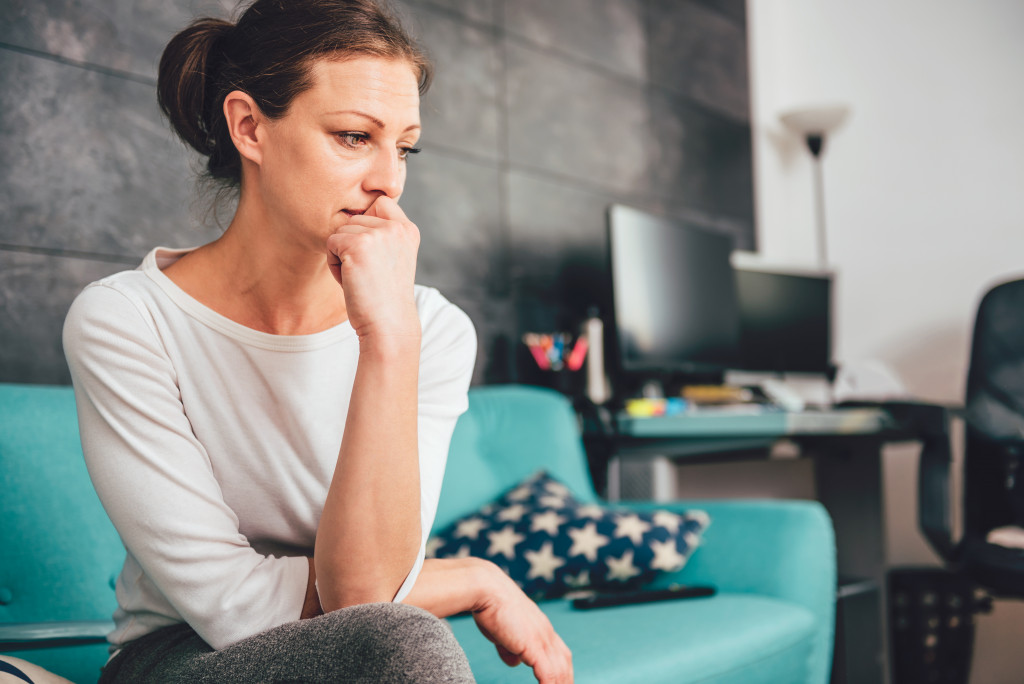Nowadays, no one is a stranger to depression. Characterized by insomnia, loss of interest in activities, lack of appetite, and extreme sad phases, the symptoms of depression can range from mild to severe.
The current data on depression proves that 1 out of every six people has suffered from depression at least once in his/her life. Similarly, it is more common in women than in men, with one out of three women experiencing depression every year. Although it doesn’t seem like a lot, these demographics increase every year, targeting more people day by day.
Fortunately, depression is treatable. Medication, psychotherapy, and electroconvulsive therapy are just some ways you can battle depression. But if you want to see long-lasting effects, self-care is the best cure for depression. Even if you don’t feel like it, sometimes you have to force yourself to get out of your depressive episodes. As you read, you will get to know some practical strategies to help you cope with your depression.
Set a Routine
Depression feels a lot like not having control over your emotions and feelings. It mostly has symptoms that have a negative effect on a person’s social circle. The best way to battle an illness that makes you lose control of your life is to take that control back. Forming a set routine can empower you to feel like you are in control.
Following a set of performable functions, religiously can have a tremendous effect on your mental health. The routine can be anything from waking up at a set amount of time and brushing your teeth to cooking a meal for yourself. There are many other ways to give you a feeling of control, but setting a routine is the foundation for you.
Make Achievable Goals
While setting a routine is an essential step in your fight with depression, the routine’s goals shouldn’t be too arduous. They should be easy, manageable tasks that don’t make you feel overwhelmed. Consequently, it is okay if you miss a step in your goals. Instead of shaming yourself for missing the goal, adopt an insightful attitude. Analyze where you went wrong and avoid making that mistake again.
Remember, you are your harshest critic. If you’re too hard on yourself, people will treat you the same way. So be kind to yourself!
Find New Activities
Another excellent way to deal with depression is to throw yourself into activities. Finding things to do can give you a semblance of the life you once had. Since a lack of interest in activities characterizes depression, doing the old tasks can seem tedious and overwhelming, causing you to lose track of yourself while performing them.
This is when you should try to adopt some new activities to distract your mind. You could learn a new language, new software or take guitar lessons. Learning a new skill is an interactive process that can bring you innumerable joy.
Regulate Sleeping Habits
Insomnia is perhaps the most prominent symptom of depression. It is a sleep disorder that causes erratic sleeping patterns, making you feel tired and listless. Irregularity in your sleeping patterns can trigger the onset of depression. Staying up late one day only to sleep excessively the next is terrible news, especially for people with depression.
Regulate your sleep patterns by going to bed on time. If you have trouble sleeping, try to wake up early one morning and do not sleep the entire day. The lack of sleep will cause you to go to bed earlier and wake up on time. Performing some mild exercise or medication is another effective way to bring sleep. You could explore other ways tips if you have trouble falling asleep on time.
Do Exercise
Exercise is an all-encompassing treatment for depression. Performing moderate exercise can release endorphins, “the feel-good hormones,” which can positively affect your mood and mental health. Performing regular exercise can also improve the growth of nerve cells. As a result, the hippocampus — the part of the brain that regulates moods, grows larger. Consequently, an improvement in brain function takes place. Exercise helps to regulate sleep. Hence, you can fight insomnia with it too.
The most crucial step is not to take on something you can’t handle. Start with something small that you can continue and wait for the results to set in.

Balanced Diet
There are many studies that suggest that some foods can have adverse effects on mental health. Bingeing on high-carb junk food can cause your moods to fluctuate, acting as a trigger for depression. Having a balanced, well-composed diet can positively affect your mental health and your appetite. No one is asking you to follow a strict diet. However, including fresh vegetables, fruits, seeds, nuts, legumes, and fish in your diet is more than enough.
Happy recovery!
It all boils down to keeping yourself in check. Whenever you feel the onset of dark times, find an activity to do, throw yourself into acceptable practices. Self-care can not only battle your depression, but help increase your quality of life.
